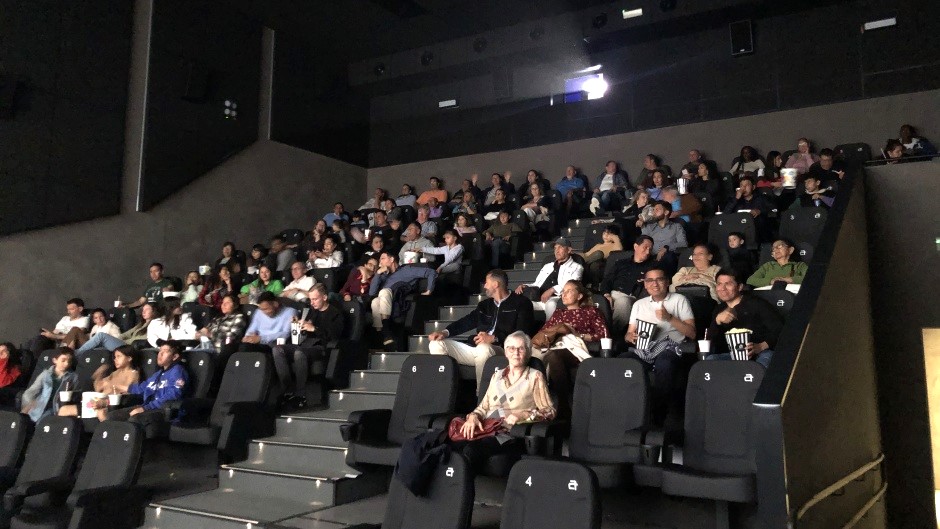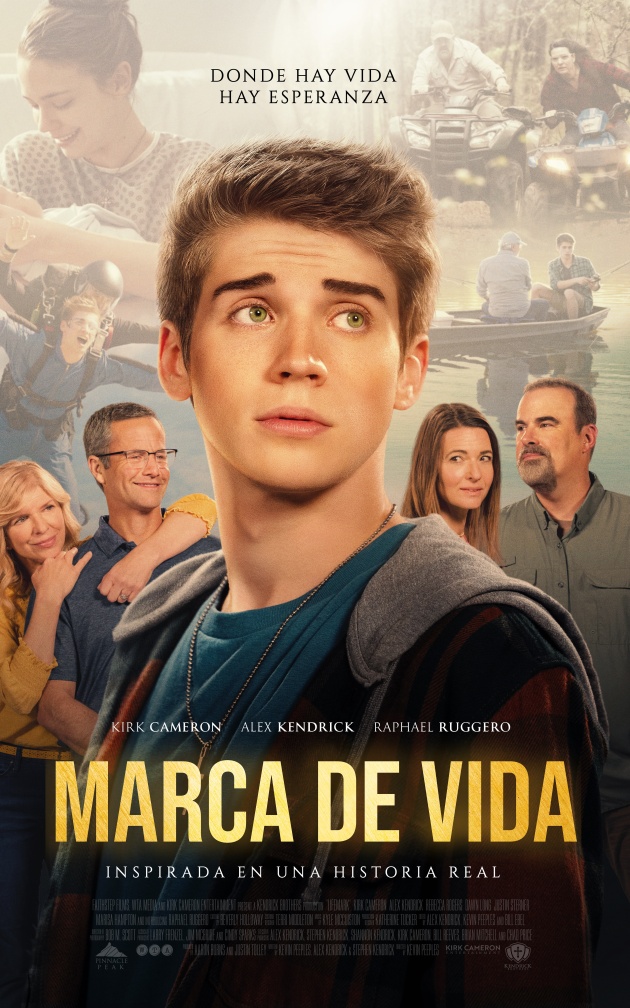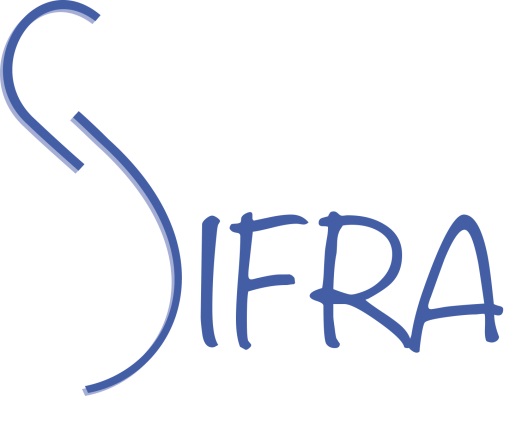If we want a cinema of values, that teaches the world what we believe and how we can respond to the situations we face, we need to support what is out there.
 A large group went to see the movie in Palma de Mallorca, Spain. / Photo: Chris Mathieson.
A large group went to see the movie in Palma de Mallorca, Spain. / Photo: Chris Mathieson.
This weekend saw the premiere in Spain of Marca de Vida (original title: Lifemark), a film that shows us that adoption is a very positive option for a young pregnant woman in crisis.
In several cities all over the country many friends used the chance to go to the cinema, together with their friends and family. Encouraged by earlier effective communication from the promoters, and after a pre-screening for representatives of the Evangelical Council in Madrid, churches organised groups to go wherever they could.
Our organisation, Sifra, and the Evangelical Council in Mallorca organised a group of 77 people, from five churches, to see it together.
Here are some different impressions that we received via WhatsApp:
(From Mallorca) “We liked the film very much”.
(From Madrid) “I went yesterday, with a young girl. There were 7 of us in the room. I agree that the positive message of adoption came out, but what a pity that they can’t make a better quality and less sentimental film”.
(From Catalonia) “The hall was FULL! What a wonderful film, so many messages in a single story”.
(From the Balearic Islands) “In itself it was a bit disappointing. It was not the best film on the subject, far from it. Nor is it really a clearly ‘Christian’ film, abortion (or non-abortion) appears as an afterthought... it all comes out too well”.
(From Madrid, a woman who has an adopted daughter) “I saw the film yesterday, there were only 6 of us in the room. I liked it, we laughed too”.

[photo_footer] Poster of Lifemark, Marca de vida, in Spain. [/photo_footer] The message of the film is very positive about what a blessing adoption can be. It follows the reunion of an adopted kid with his birth mother when he turns 18. From the question of whether they wanted to meet in the first place, to the event and the revelation of how he got from his mother's womb to the family that adopted him.
Adoption is certainly a choice with a bad press, because of the scandals of a past that is not yet history. The film Philomena, with Judi Dench in search of her son, adopted from an Irish convent and sold to rich Americans, tells that side of the story, although it also has a decent ending in the end. Now that's a quality film.
If you want a romantic film, but one that tells us about the difficult decision not to abort, but to give up the child for adoption, I recommend Eduardo Verástegui’s Bella. Another film that deals with the subject of adoption that should not be missed is The Blindside with Sandra Bullock, without forgetting Rachel Hendrix’s October Baby, which awakens us to the reality of abortion survivors.
On abortion itself, most don't have the courage to watch the original The Silent Scream from 1984 (the title of which was used for another docu-fiction film last year). But Unplanned, the story of Abby Johnson, a clinic director who repents and joins the pro-life movement, stands out as a must-see. And if you’re looking for good work from Alex Kendrick and Kirk Cameron, go for Fireproof or Courageous.
In this case, Lifemark is based on a true story. With this fact we can conclude that a happy ending in almost every aspect is possible in life, although it won’t always be so. We see a teenager David (Rafael Ruggero) who turns 18 and, especially because he suffers from a genetic disease, decides to look for his biological mother. At the same time Melissa, his mother realises that he will have turned 18 and contacts the adoption agency to offer a contact, if her son so wishes.
Here we become aware of the big differences between the laws on each side of the Atlantic. While there a pregnant woman can choose the parents who will adopt her child, here in Spain everything is put in the hands of the state, and the social services prevent any contact unless the child asks for it at the age of 18.
The biological mother cannot know what kind of person she has adopted: an evangelical Christian couple, an atheist, an immigrant, a lesbian? In Spain we do not know. What we do know is that there are long waiting lists, some 30,000 couples, who would like to adopt in this country. And although this number is similar to the number of children in need of foster care, there is rarely a willingness to take in a child who is already several years old, possibly in a situation of risk and perhaps even with psychological problems.
Adoption is still a challenge. The film shows that it has been successful. The family is evidently Christian. At one point an open Bible is seen and it is commented that God will have a plan for David’s life, but apart from this the faith of the family is somewhat veiled. Or perhaps therein lies the charm, seeing that they are how we believers would really act most of the time.
I particularly liked Rebecca Rogers’ performance as Susan, the adoptive mother. She has suffered in life and struggles with the desire not to see disappointment once again.
The reunion is arranged and the family travels, the two boys by train to fulfil a dream, and their parents separately. All the time David’s best friend is pestering him by recording with his mobile phone every event, every expression of emotion - or lack of it. A moment of doubt occurs when the partner of Melissa’s youth has to decide whether she wants to meet him. I leave you with this little unknown.
And just as the film seems to come to an end, almost as if it were an addition to the original script, we learn that Melissa was about to have an abortion, changing her mind at the very last moment. It seems to us that if this, the escape from the abortion, were the main message, it could have been presented in a very different way.
In any case, as we have already mentioned, it seems that the film is based on the original work of David’s friend. He wanted to emphasise the wisdom of the decision to adopt (and on this point he got it right). This is why there have been all kinds of reactions to the film.
Finally, I would like to point out that it is a rare occurrence in Spain to see a film by evangelical producers and actors. On one occasion (I Can Only Imagine) I was at the premiere alone with my wife, a luxury that I would have preferred not to enjoy in this way.
If we want a cinema of values, that teaches the world what we believe and how we can respond to the situations we face, we need to support what is out there. For this we thank European Dreams Factory, the promoter who, among other films, has chosen to promote a series of films like this one.
[analysis][title] About Sifra in Spain[/title][photo] 
[/photo][text]Sifra, the association in Mallorca that coordinated the group that went to the cinema, is a national evangelical organisation with a vocation to help women in crisis pregnancies, as well as those who suffer from the after-effects of having had an abortion in the past. We offer help by informing about the alternatives, leaving the woman to make her decision in peace.
It is very private, but now more than ever, with the decision of the Spanish Congress to stop reporting on alternatives to abortion, an independent offer of information is invaluable.
And once the decision is made to go ahead with the pregnancy, Sifra, like other pro-life organisations, offers practical support to expectant mothers, even beyond the birth. There are also occasional training courses in Christian pregnancy counselling skills.
[/text][/analysis][donate]

Las opiniones vertidas por nuestros colaboradores se realizan a nivel personal, pudiendo coincidir o no con la postura de la dirección de Protestante Digital.
Si quieres comentar o